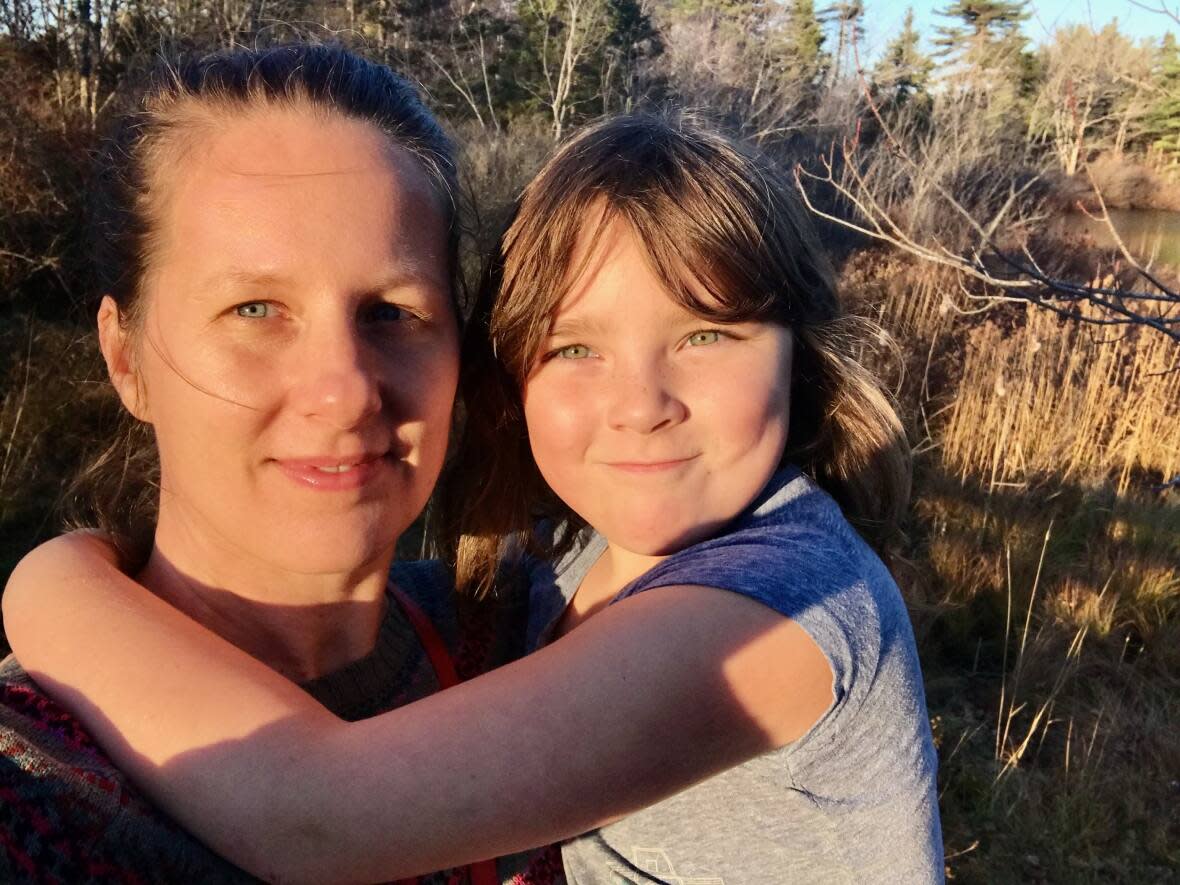N.S. family seeks more support for out-of-province surgery not covered by MSI

A Halifax mother whose daughter has a neurological disorder requiring a $65,000 surgery in the U.S. says the province should do more to help families so they can access care.
"It breaks my heart to meet patients all over Canada who have to remortgage their houses," said Paula Cameron, whose eight-year-old daughter, Maddy, was diagnosed with tethered cord syndrome in the U.S.
The American Association of Neurological Surgeons describes tethered cord syndrome as "a neurological disorder caused by tissue attachments that limit the movement of the spinal cord within the spinal column."
A year and a half ago, Cameron — a senior research associate in continuing professional development and medical education at Dalhousie University — said she noticed Maddy was tripping a lot and having difficulty holding things. The symptoms got worse with time, she said.
"We're at a point where she needs a wheelchair for a longer distance and she has significant fatigue," Cameron said.
Cameron said her pediatrician ordered an MRI. It revealed Chiari malformation — structural defects in the cerebellum. While researching Chiari malformations, Cameron found out some children with symptomatic formations also have tethered cord syndrome.
Hard to find N.S. referral
Cameron took her daughter to see neurosurgeons in Nova Scotia. She said nothing appeared in Maddy's imaging to suggest she had tethered cord syndrome.
Unconvinced, Cameron arranged a consultation with Dr. Petra M. Klinge, a Rhode Island-based neurosurgeon associated with Brown University with expertise on the disorder. Klinge diagnosed Maddy with tethered cord syndrome.
The surgery Maddy needs isn't available in Canada, Cameron said.
She said in order for Maddy to be covered by Nova Scotia health insurance (MSI), she would need a referral from specialists in Nova Scotia. When she shared Klinge's diagnosis, it did nothing to help her case.
Specific requirements needed for MSI coverage
Nova Scotia Health and Wellness said out-of-province referrals are only considered if the area of expertise being requested is not available in the province. But with tethered cord syndrome, there are resources and expertise to diagnose it in Nova Scotia, the department says.
The department said there are specific criteria that must be met for MSI to provide coverage for out-of-province treatments.
There has to be a confirmed diagnosis from a Nova Scotia specialist.
The referral from the Nova Scotia specialist must also be initiated by the specialist who is involved in the care of the patient at the time of the referral.
The medical procedure must be one that is covered by MSI.
"It can be really hard to find someone to refer you," she said.
Cameron is going ahead with the procedure for Maddy in the U.S. She's raising money for it on the crowdfunding platform, GoFundMe.
Maddy could be getting the surgery in Providence, R.I., as early as September, Cameron said.
"I'm really hoping that the surgery will restore her energy so that she can play like a normal child," she said. "It's really hard to see a child be in bed on their side, curled up for most of the day."
'Feeling like a child in an old woman's body'
Should the surgery be successful, Cameron said it would mean a world of difference to her daughter.
She said she's looking forward to seeing her daughter heal from the surgery and finally get a chance to take part in more activities. She's raised more than $15,000 so far.
"Maddy talks about feeling like a child in an old woman's body," Cameron said.
Glace Bay man had successful surgery in U.S.
Kyle MacLean, a 28-year-old from Glace Bay, N.S., recently got spinal surgery for tethered cord syndrome in Providence. He said his symptoms began four years ago.
Like Maddy, MacLean's tethered cord didn't appear in imaging, and he ended up being diagnosed by Klinge in the U.S.
"One of the bigger symptoms is you can't lay flat on your back. The pulling sensation and the pain is too difficult," MacLean said.
MacLean said he's feeling a lot better since the surgery and he's finally able to lie on his back.
"I feel like I can move in ways I couldn't before, stand up straighter. Things like that.I don't wake up in the middle of the night having to get up five or six times. I don't have as much tingling in my legs, as much numbness," MacLean said.
"And that's just the start. It could take a few months for the full benefits of the surgery. I still think a lot of things are yet to improve."
MacLean said the surgery ended up costing around $65,000.
Local experts 'wouldn't give it the time of day'
"When I get my [medical] records back and everything, I'm going to go talk to MSI and see if I can get anything back, but I'm not holding out much hope."
MacLean said local doctors should be up to date with the latest science on the condition.
"I've spoken to a couple of neurosurgeons in Halifax. I brought it up and they wouldn't give it the time of day," he said.
MORE TOP STORIES

 Yahoo Movies
Yahoo Movies 
